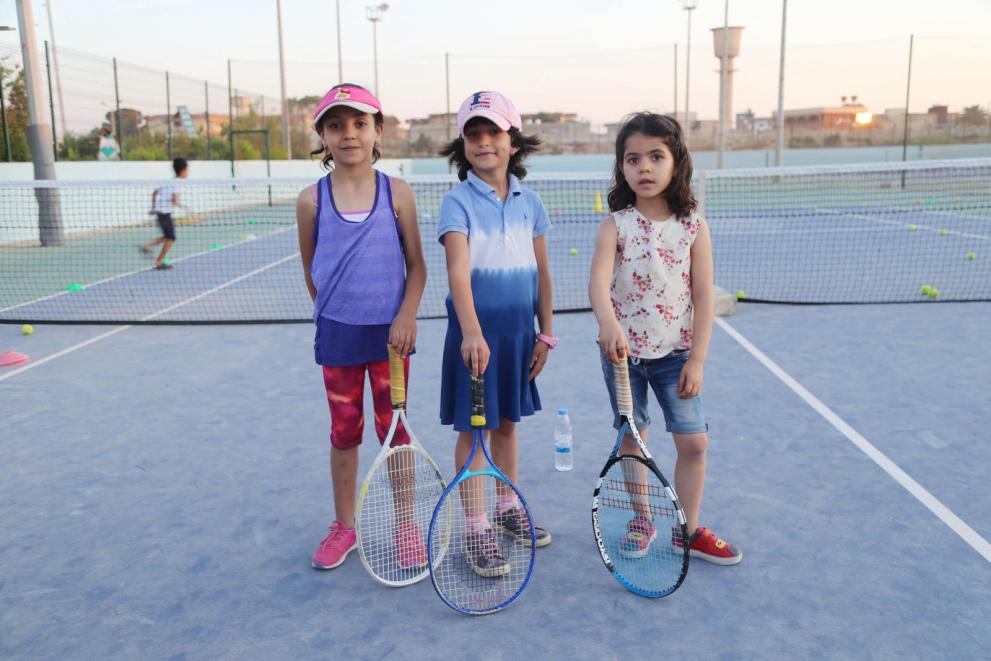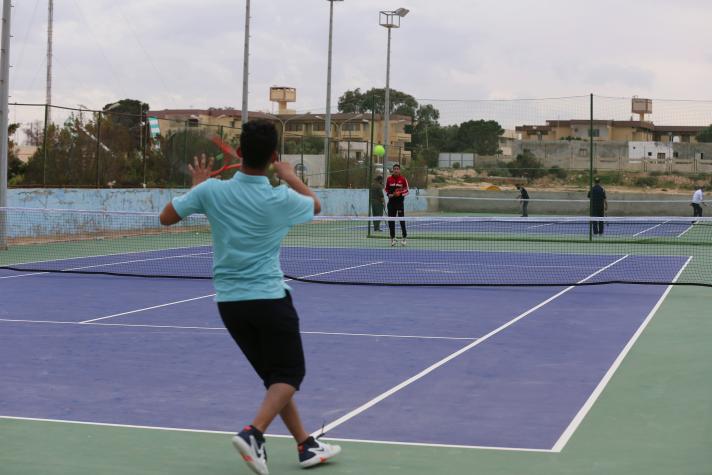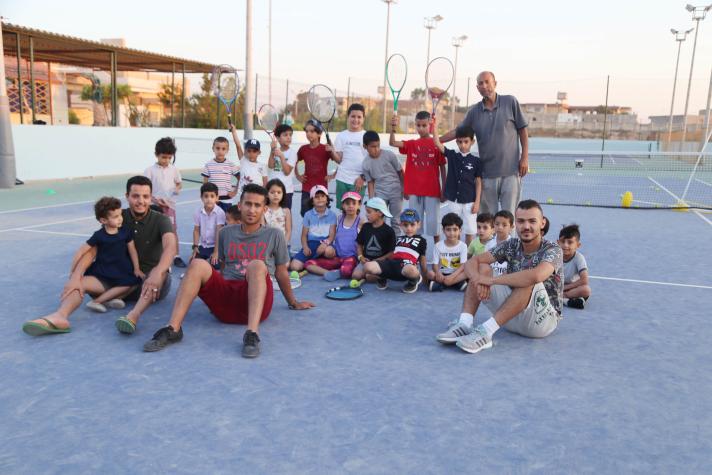
All around the world, sport is considered a powerful tool for uniting people, crossing boundaries, and developing tolerance, respect and social inclusion. Even though sport unites people of all genders, colors, and religions all around the world, in Libya, it has not totally overcome the gender barrier yet. According to Ms. Hamida Abu Algasim Ewshah, member of Sabratha Municipal Council, women still do not have the same opportunities to enjoy sports in her city. “Due to our social norms, women need to have their own space where to practice sport, and the conflict did not help at all,” she said. ''The municipality allocated a plot next to the Tennis Academy for establishing a women sport complex. But many efforts are still to be made before seeing the launch of the project. As a matter of fact, sport for women is not yet considered as a basic right, '' she said.
Sabratha Tennis Academy was founded in 2007. This was a response to a request from a big number of tennis players, mainly men. It was the first academy of its kind in Libya. In order to motivate a great number of people and especially the youth to come to play tennis, the Academy initiated a training programme in several schools in the city. Following violent clashes that occurred in Sabratha in 2017, many infrastructures were damaged in the city, including the tennis courts. ''It was a hard time for me when I stopped playing. The courts in Sabratha were ruined and I thought about enrolling in another club,'' declared Mohammed Kamal Al-Jamal, 23 years old, tennis player and trainer at Sabratha Tennis Academy. “We never have before enough tennis courts to practice, neither enough resources," said Mr. Abdulsalam Sultan, Director of Sabratha Tennis Academy. "The situation worsened when the courts were damaged during the last war in 2017. Most of the players stopped playing completely or they went to other cities to continue to do so, " he added.
Aimed at supporting access to basic services, community security and economic recovery in Libya, the EUTF funded “Strengthening Local Capacities for Resilience and Recovery” project that is being implemented by UNDP in coordination with the Ministry of Local Governance and the municipalities of Tripoli, Sabratha, Sebha, Murzuq, Benghazi and AlKufra. The project is supporting local peace actions, promoting dialogue across different communities, rehabilitating critical infrastructures and supplying equipment. One of the initiatives undertaken was the renovation of four tennis courts and the provision of sport equipment at the Tennis Academy. After this initiative, the sport institution was able to resume its activities. It opened its doors to junior and senior players, including girls and boys, men and women. ''Women in Sabratha want to play sport, including tennis, and the courts that have been renovated by UNDP with funds from the European Union have motivated them to participate in these games, '' stated Ms. Hamida Abu Algasim Ewshah, member of Sabratha Municipal Council.
Despite still facing barriers related to social norms, the rehabilitation of the four tennis courts has opened new opportunities for women to practice tennis.
“The Academy is still mainly for men, but after the rehabilitation, something has already changed. One day per week, the courts are exclusively for the use of young girls and women,” explained Hamida.
The facility is also allowing again young people from Sabratha and surroundings to socialize through tennis and forget about the crisis in the country. During summertime, the Academy organizes special sessions for junior players, girls and boys. ''It is an opportunity to attract young people and help them to focus on sport rather than staying in the streets with many risks of being involved in illegal activities, '' declared Abdulsalam. “Women want to benefit more from those sport facilities. We hope that UNDP and EU continue to be on our side so that we, as women, can have more access to them,” declared Hamida from the Sabratha Municipal Council.
In Sabratha, UNDP-EU partnership has also rehabilitated the High Institute for Science and Technology, the Health Center, the Department of Ambulance and Emergency at the Teaching Hospital and the basketball court, ensuring that women have access to all these facilities.
Details
- Publication date
- 10 March 2020
- Region and Country
- Libya
- Thematic
- Improved migration management


